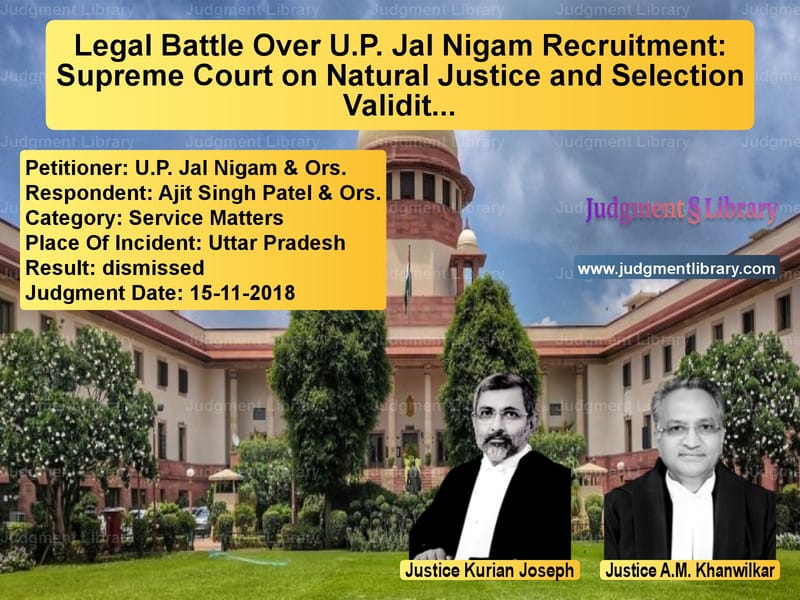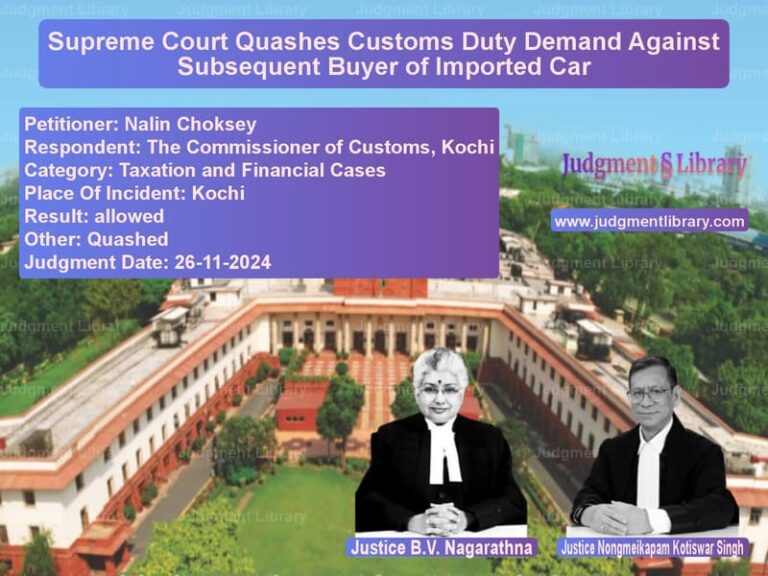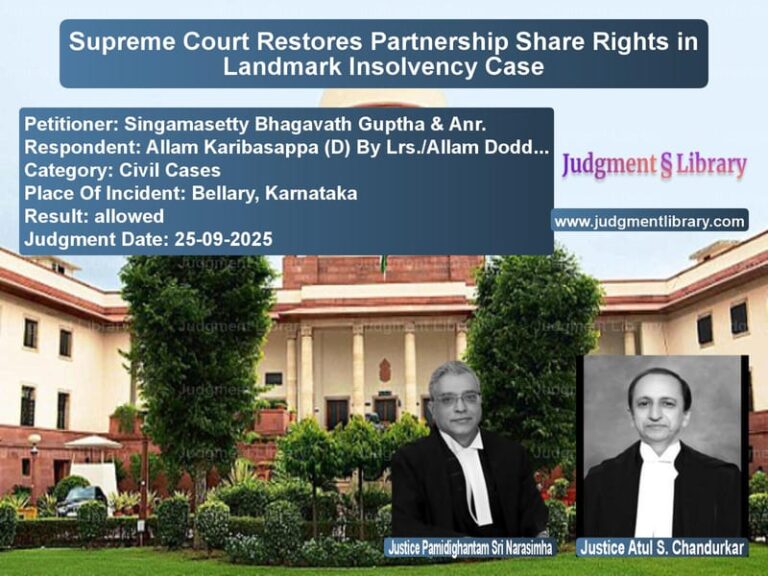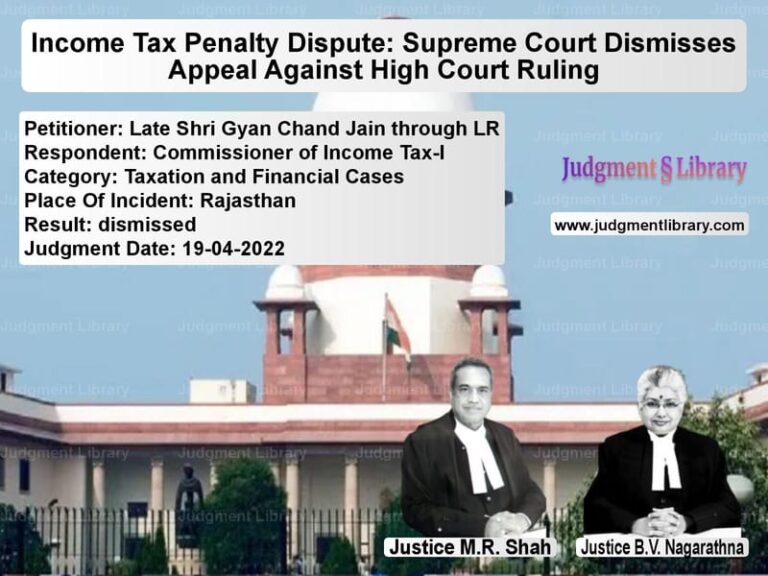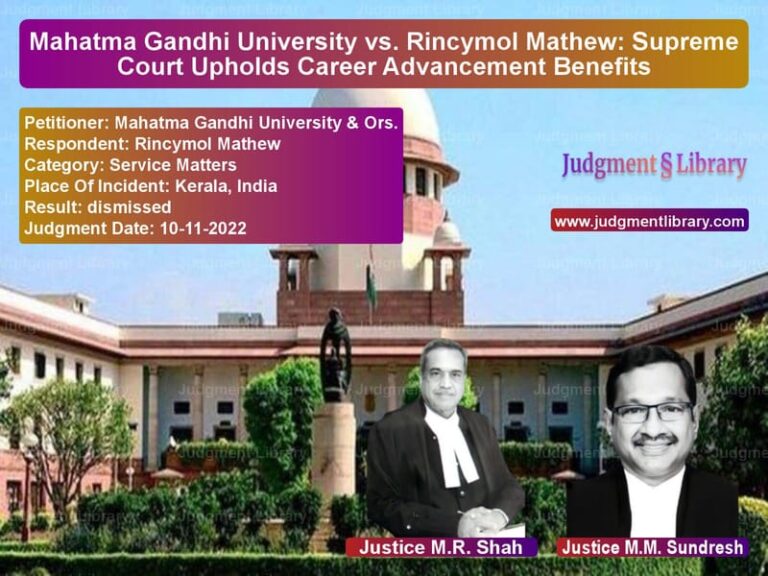Legal Battle Over U.P. Jal Nigam Recruitment: Supreme Court on Natural Justice and Selection Validity
The case of U.P. Jal Nigam & Ors. vs. Ajit Singh Patel & Ors. revolved around the contentious issue of recruitment irregularities and the principles of natural justice in public employment. The Supreme Court had to decide whether the mass cancellation of recruitment by U.P. Jal Nigam was justified without conducting an individual inquiry.
The litigation stemmed from the appointment of 122 Assistant Engineers in various disciplines under U.P. Jal Nigam. The selection process, initiated through a notification on 19th November 2016, was later found to have irregularities, leading the Jal Nigam authorities to cancel the entire selection. This decision was challenged in the Allahabad High Court, which ruled against the wholesale cancellation, citing a violation of natural justice. The matter then escalated to the Supreme Court.
Background of the Dispute
The recruitment in question involved the selection of candidates for the positions of Assistant Engineers (Civil, Electrical/Mechanical, and Computer Science/Electronics & Communication). However, after the completion of the process, the Board of Directors of U.P. Jal Nigam, in its 166th meeting held on 26th July 2017, concluded that the entire selection process was tainted with malpractice and declared all 122 appointments void ab initio.
The High Court, however, ruled that the decision to terminate all appointees without distinguishing between tainted and untainted candidates was unfair and violated the principles of natural justice. The court directed the Jal Nigam to conduct an inquiry and provide affected candidates with an opportunity to be heard.
Arguments by the Petitioner (U.P. Jal Nigam)
- The selection process was marred by large-scale irregularities, making it impossible to distinguish between genuine and tainted candidates.
- There were significant errors in the question papers and answer keys, leading to an unfair advantage for some candidates.
- Some candidates who were ineligible were allowed to appear for the interview, compromising the integrity of the selection.
- The entire process was conducted in a hurried manner without adequate checks and balances, which necessitated complete cancellation.
- Since the appointments were temporary, the authorities had the right to cancel them without prior notice.
Arguments by the Respondents (Appointed Candidates)
- The cancellation of the entire recruitment without providing individual hearings to the selected candidates was arbitrary and unjust.
- The principle of natural justice mandates that affected individuals must be given an opportunity to present their case before adverse action is taken.
- The High Court had correctly ruled that the authorities should have conducted an inquiry to separate the innocent candidates from those who may have benefited from irregularities.
- The selected candidates had already joined their positions and had legitimate expectations that their appointments would not be terminated without due process.
- There was no concrete evidence to prove that each and every candidate had engaged in malpractice.
Supreme Court’s Judgment
The Supreme Court upheld the High Court’s decision, emphasizing the necessity of adhering to the principles of natural justice. The Court ruled:
- Mass cancellation of recruitment without giving individual candidates an opportunity to defend themselves was unjust.
- The authorities should have conducted an inquiry to differentiate between tainted and untainted candidates.
- If the selection process was so fundamentally flawed that individual scrutiny was impossible, the authorities could justify complete cancellation, but they failed to establish such an impossibility in this case.
- The principles established in Union of India vs. O. Chakradhar applied, wherein if fraud and irregularities are widespread, individual notices may not be necessary. However, this case did not meet that threshold.
- The High Court’s directive to conduct an inquiry and issue reasoned orders for each candidate was reasonable and should be followed.
The Supreme Court observed:
“The impugned order dated 11.8.2017 has been passed in violation of principles of natural justice without issuing notice and without affording opportunity of hearing to the petitioners. No exercise was undertaken to distinguish the case of tainted and non-tainted candidates before canceling the entire selection.”
Conclusion
This ruling reinforced the legal principle that mass terminations without due process violate the fundamental rights of affected individuals. The Supreme Court’s decision serves as a precedent for ensuring fairness in public employment processes, emphasizing that even in cases of alleged irregularities, authorities must follow proper procedures before taking adverse actions against selected candidates.
Ultimately, the case underscores the balance between preventing fraudulent appointments and protecting the rights of individuals who may have been selected fairly. The U.P. Jal Nigam must now conduct a fresh review, ensuring that only those who were genuinely guilty of malpractice face consequences while others are not unfairly penalized.
Petitioner Name: U.P. Jal Nigam & Ors..Respondent Name: Ajit Singh Patel & Ors..Judgment By: Justice Kurian Joseph, Justice A.M. Khanwilkar.Place Of Incident: Uttar Pradesh.Judgment Date: 15-11-2018.
Don’t miss out on the full details! Download the complete judgment in PDF format below and gain valuable insights instantly!
Download Judgment: U.P. Jal Nigam & Ors vs Ajit Singh Patel & O Supreme Court of India Judgment Dated 15-11-2018.pdf
Direct Downlaod Judgment: Direct downlaod this Judgment
See all petitions in Employment Disputes
See all petitions in Recruitment Policies
See all petitions in Termination Cases
See all petitions in Judgment by Kurian Joseph
See all petitions in Judgment by A M Khanwilkar
See all petitions in dismissed
See all petitions in supreme court of India judgments November 2018
See all petitions in 2018 judgments
See all posts in Service Matters Category
See all allowed petitions in Service Matters Category
See all Dismissed petitions in Service Matters Category
See all partially allowed petitions in Service Matters Category

